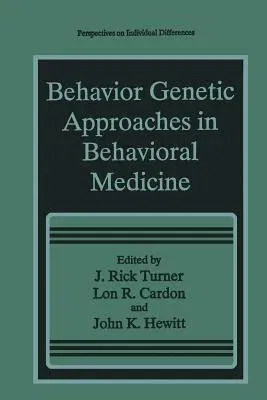Behavior Genetic Approaches in Behavioral Medicine (Softcover Reprint of the Original 1st 1995)Paperback - Softcover Reprint of the Original 1st 1995, 25 April 2013

Qty
1
Turbo
Ships in 2 - 3 days
In Stock
Free Delivery
Cash on Delivery
15 Days
Free Returns
Secure Checkout
Part of Series
Perspectives on Individual Differences
Print Length
273 pages
Language
English
Publisher
Springer
Date Published
25 Apr 2013
ISBN-10
1475793790
ISBN-13
9781475793796
Description
Product Details
Book Edition:
Softcover Reprint of the Original 1st 1995
Book Format:
Paperback
Country of Origin:
NL
Date Published:
25 April 2013
Dimensions:
23.39 x
15.6 x
1.55 cm
ISBN-10:
1475793790
ISBN-13:
9781475793796
Language:
English
Location:
New York, NY
Pages:
273
Publisher:
Weight:
412.77 gm

